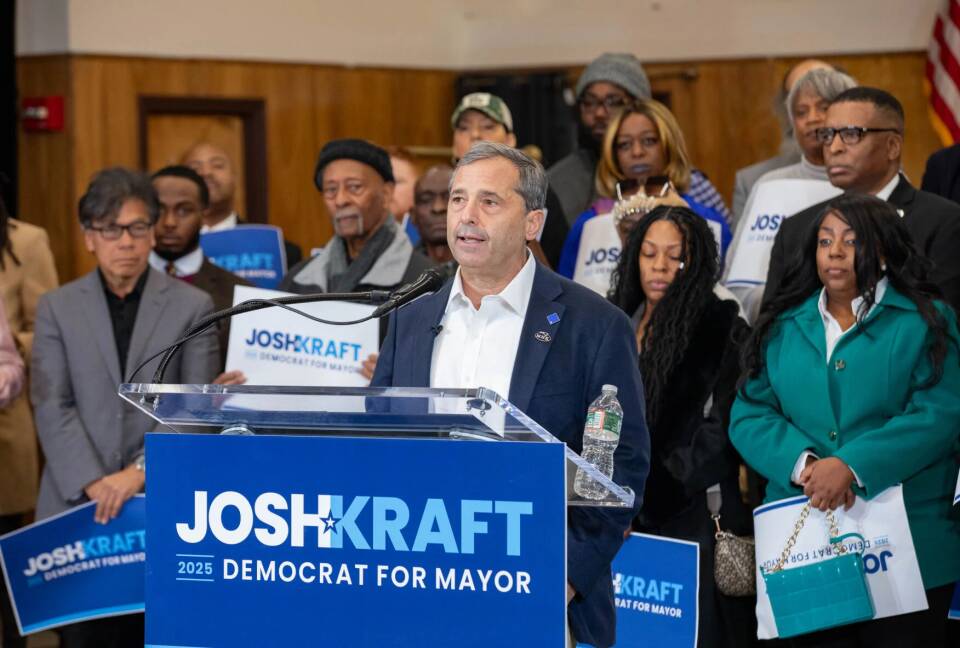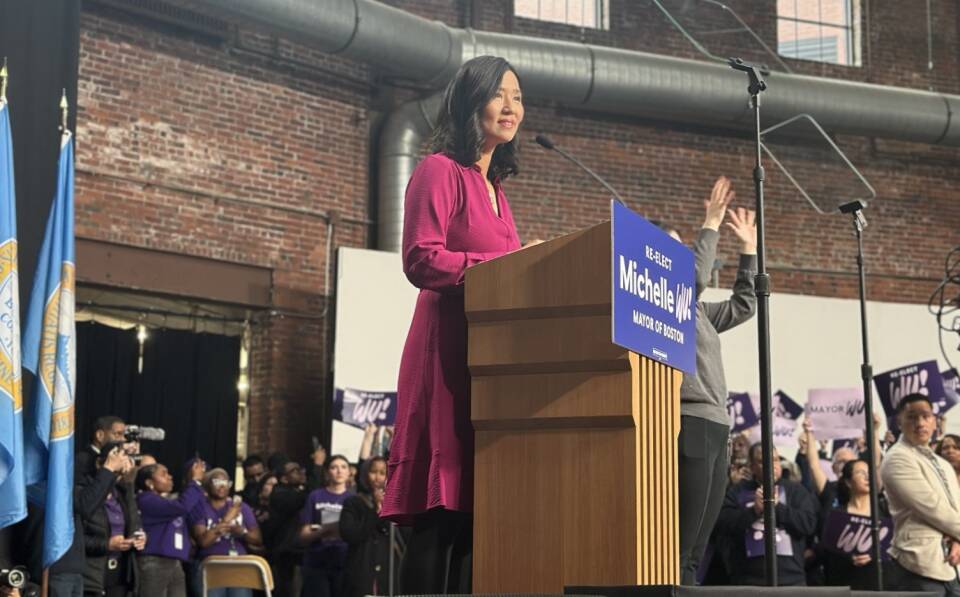A day after her most prominent campaign opponent lobbed accusations of violating state campaign finance law, Boston Mayor Michelle Wu took the morning Thursday to defend her reelection campaign. Wu also doubled down on tying candidate Josh Kraft to the locally unpopular Trump administration, labeling his campaign style as negative, bankrolled by the ultra-rich and reminiscent of a “Trump playbook strategy.”
“And it’s worked at the federal level,” Wu said while flanked by supporters at a press conference in Roslindale. “We have seen that millions of dollars poured in from billionaires just attacking, attacking and tearing down is why we are where we are at the federal level. ... But it relies on a strategy of just trying to splatter mud at any collateral public servant or institution or partner or community organization or public park or whatever the topic of the day is.”
Kraft, whose campaign was recently accused by city Democratic Ward Committee officers of “illegal campaign spending and coordination” with a friendly super PAC, sent a letter to state campaign finance oversight officials Wednesday with multiple allegations of the mayor deploying public resources for political purposes. They included unverified incidents accusing Wu staff doing campaign work for her and, in one case, At-Large City Councilor Henry Santana doing campaign work during office hours and using public resources.
“On behalf of the taxpayers of Boston, and in the interest of basic fairness, I request that [the Office of Campaign and Political Finance] launch an investigation into Michelle Wu’s illegal and improper use of public funds for political purposes,” reads the letter signed by Kraft mayoral campaign manager Brandon Scheutz.
On Thursday, Wu wholly dismissed the allegations, pointing to campaign finance rules that allow public employees to engage in political activity when not working.
The Kraft campaign also alleged that Wu’s staff has pressured city employees to engage in political activity off the clock and ransomed city grant funding to nonprofit, community and business leaders, with a warning for them to avoid the Kraft campaign.
Wu did not specifically address allegations about her staff pressuring other staff to campaign, or pressuring or local leaders not to interact with the Kraft campaign.
“I think there’s a lot of deflection happening there,” Wu said of Kraft.
“Being a public official or being a public servant working for the city or the state doesn’t mean you give up your First Amendment rights to support a candidate,” Wu said when asked about Kraft’s allegations. “It means that you cannot, you cannot use public resources and taxpayer dollars for political purposes, so that means public employees cannot at all be involved in fundraising and public employees cannot use city time and work time to do any political fundraising, or — sorry — any political activity period.”
The Wu-Kraft squabble comes days after the countdown to the Sept. 9 preliminary passed the 100 day mark. The two are widely expected to be the top contenders in a head-to-head on the November 4 ballot, with Wu enjoying a wide lead over Kraft according to multiple political surveys.









